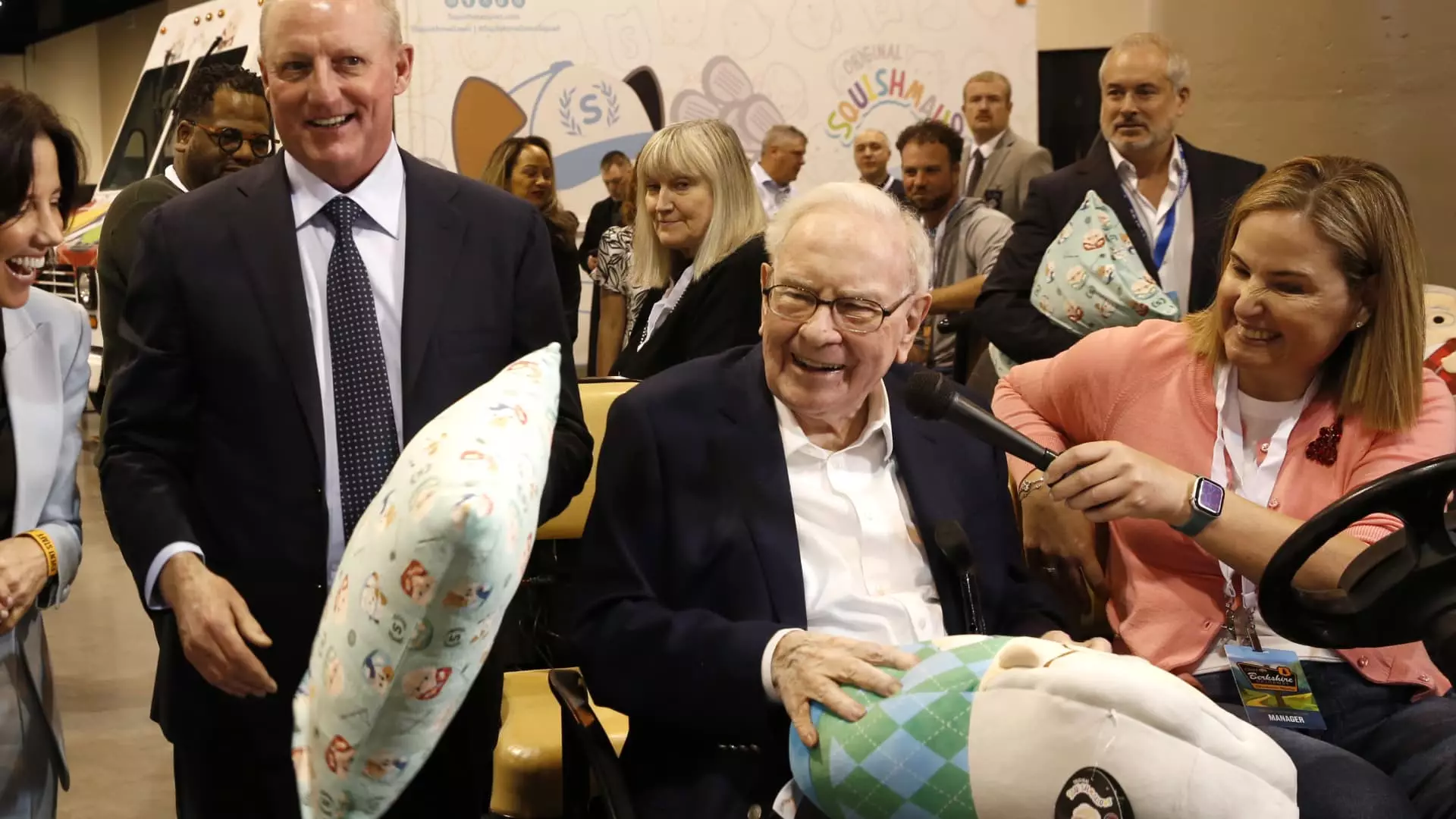The recent announcement made by Warren Buffett during the annual meeting of Berkshire Hathaway sent shockwaves through the investing world. As the 94-year-old Oracle of Omaha prepares to hand over the reins to his successor, Greg Abel, many are grappling with mixed emotions. This transition was not just a routine CEO change; it marked the end of an era defined by unparalleled achievement and wisdom. While earlier speculation suggested Abel would take the role at some point, the abruptness of the announcement caught even seasoned investors off guard. Is this change a reflection of inevitability or an indication of deeper issues within the company?
The Legacy of Buffett: A Double-Edged Sword
Buffett’s reputation looms large over Berkshire Hathaway, a historical titan in the world of investments. His investment philosophy has shaped generations of investors and propelled Berkshire’s market cap to an astonishing $1.2 trillion. Yet, as Abel takes charge, we must confront the uncomfortable reality that the foundations built meticulously during Buffet’s monumental tenure may not easily withstand the pressures of modern business. Unlike Buffett’s legendary steadfastness, are we facing a future led by a more reactive managerial style that may steer the conglomerate from its established path?
The legacy of Buffett is a double-edged sword. Investors have long revered his unique ability to identify and hold onto value over time. But in an era dictated by speed and adaptability, such a slow and deliberate approach may face challenges. Abel is praised for his hands-on management style, yet one must wonder: Will his ability to pivot quickly enhance or dilute the fundamental characteristics that made Berkshire a powerhouse in the first place?
Buffett’s Assurances: A Mask for Uncertainty?
While Buffett expressed confidence that his successor would lead Berkshire towards even brighter horizons, one cannot help but approach these reassurances with skepticism. As he indicated a wish to remain involved in an advisory capacity, does this signal a reluctant acceptance of the limitations that come with aging? With his sharp intellect still intact, Buffett’s insights may mitigate risk during the transition, but does that mean he will be able to curb the inevitable drift that may come from new leadership?
Abel himself emanated confidence that the core investment philosophy—the patient value investing that Buffett so painstakingly cultivated—would remain unchanged under his tenure. Nevertheless, the nuances of leadership are immeasurable; the temperament of a CEO can alter corporate culture, decision-making speed, and even stakeholder confidence. What happens when Abel’s own vision inevitably diverges from the Oliver Twist of Omaha’s age-drenched ideas? Are stakeholders prepared for what this evolution may entail?
The Board’s Role: A Potential Risk Factor
Buffett’s recommendation to the board, which includes his children, raises questions about the structure and dynamics of the board itself. The suggestion that his son Howie might ascend to the non-executive chair also feels like an unsettling departure from the meritocratic ideals that Buffett espoused. Is this a well-calibrated plan or an emotional decision cloaked as strategy? Will we witness nepotism seep into the operational fabric of Berkshire, altering the company’s guiding principles for generations to come?
While Buffett’s impending absence is alarming to many, the board’s consensus on Abel’s promotion may not be a panacea. A lack of diversity in thought and expertise could lead to stagnancy, with Abel’s leadership forgetting the very essence of what made the company shine under Buffett. The rapturous standing ovation at the end of the meeting is a poignant reminder of the emotional investment shareholders have in Buffett and his legacy. Will that emotional investment translate into blind trust in the coming leadership?
The Future: A Disheartening Uncertainty
Greg Abel’s appointment as CEO might symbolize hope for continuity, yet it also ironically encapsulates uncertainty. With a staggering $347 billion cash hoard at his disposal, one might hope for a renaissance of investment opportunities. However, managing such vast resources responsibly is no small feat, especially under the relentless pressure of today’s market demands. In a climate of relentless change and volatility, there is a palpable fear that Abel’s “hands-on” style will ultimately transform into a different kind of hand at the wheel—one that could either steer the ship toward innovation or allow it to capsize under the weight of outdated strategies.
As Berkshire Hathaway begins its next chapter, the emotional resonance of Buffett’s leadership cannot be underestimated. Yet, the pressing questions remain: Are we prepared for a new management ethos? Do we trust Abel to keep the Berkshire legacy intact without sacrificing the elements that made it spectacular? The conclusion of Buffett’s era is not merely a corporate transition; it is an emotional upheaval felt deeply across the wider investing community. The future may promise avenues for growth, but lurking beneath the surface is a complex tapestry of feelings, fears, and fateful decisions awaiting their moment in the spotlight.

Leave a Reply